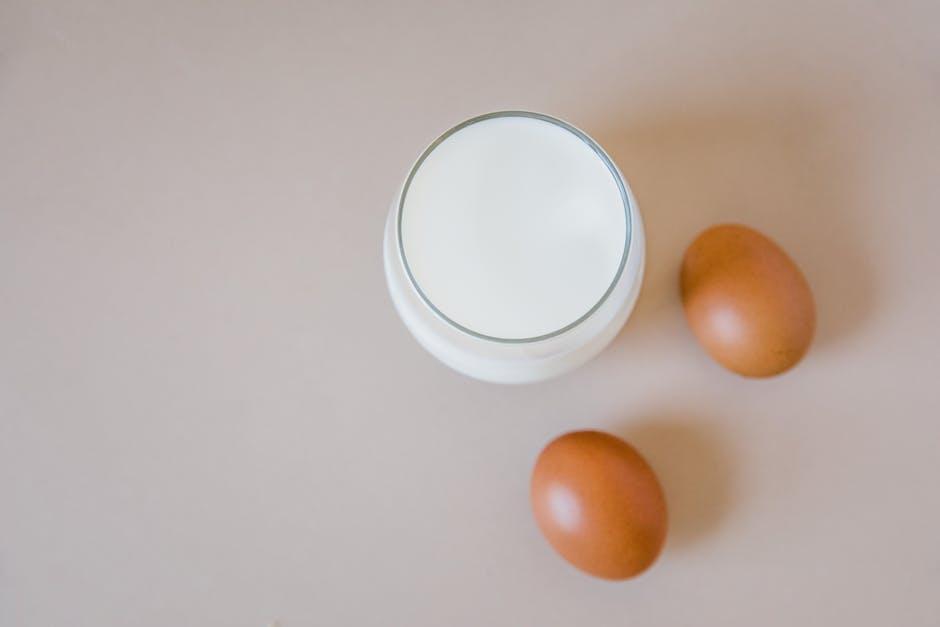Ensuring the health and vitality of your beloved canine companion is a priority for any pet owner, and understanding the nutritional needs of your dog is a crucial step in this journey. Among the essential nutrients that play a pivotal role in your dog’s overall well-being is calcium. This vital mineral is not just a building block for strong bones and teeth; it also supports critical bodily functions, from muscle contractions to nerve signaling. In this article, we’ll explore the importance of calcium in your dog’s diet, how it contributes to their health, and practical tips to ensure your furry friend is receiving the right amount. Join us as we delve into the world of canine nutrition and uncover how you can nurture your pet with love and knowledge.
Understanding Calciums Essential Role in Canine Health
Calcium is more than just a mineral; it’s a crucial building block in your dog’s overall health. This essential nutrient supports strong bones and teeth, ensuring your furry friend can enjoy a life full of play and adventure. But its benefits don’t stop there. Calcium plays a vital role in muscle function, helping your dog’s heart and skeletal muscles contract properly. It’s also integral in nerve transmission, assisting in the communication between the brain and various parts of the body.
- Bone Development: Ensures sturdy bones and teeth.
- Muscle Function: Supports proper muscle contractions.
- Nerve Transmission: Facilitates effective communication between nerves.
- Blood Clotting: Aids in essential blood clotting processes.
To maintain these critical functions, a balanced diet that includes the right amount of calcium is key. An imbalance, whether deficiency or excess, can lead to health issues such as bone deformities or kidney problems. Therefore, it’s important to consult with your veterinarian to determine the appropriate dietary needs for your dog’s specific breed, age, and activity level, ensuring a harmonious balance of nutrients for optimal health.
Choosing the Right Calcium Sources for Your Dog
When it comes to ensuring your dog receives the right amount of calcium, it’s essential to choose sources that are both effective and safe. Incorporating natural foods into your dog’s diet is a great way to achieve this. Consider these options:
- Bone Meal: A finely ground powder that can be mixed with your dog’s food. It’s rich in calcium and phosphorus, essential for bone health.
- Fish: Sardines and salmon are excellent choices, not only for their calcium content but also for their omega-3 fatty acids, which promote joint health.
- Dairy Products: Plain yogurt and cheese can be a tasty treat for dogs, providing a good dose of calcium. Ensure they are low in fat and free from artificial additives.
- Leafy Greens: Spinach and kale can be added to meals in small amounts, offering calcium along with other vital nutrients.
While natural sources are beneficial, there are calcium supplements available specifically designed for dogs. These can be a convenient option, particularly for pets with dietary restrictions or specific health needs. Always consult with your veterinarian before introducing new foods or supplements to your dog’s diet to ensure they are appropriate and beneficial for your furry friend.

Balancing Calcium with Other Nutrients for Optimal Well-being
Ensuring your dog receives the right amount of calcium is crucial, but it’s equally important to balance it with other essential nutrients. A harmonious blend of minerals and vitamins supports bone health, muscle function, and overall vitality. Phosphorus is a key partner to calcium, working in tandem to strengthen bones and teeth. However, maintaining the correct ratio is vital, as too much phosphorus can hinder calcium absorption.
- Vitamin D: This vitamin is essential for calcium absorption and helps regulate its balance in the body. A deficiency can lead to weakened bones.
- Magnesium: It plays a role in converting vitamin D into its active form, facilitating calcium uptake.
- Protein: Adequate protein levels support bone development and maintenance, ensuring calcium is utilized effectively.
Integrating these nutrients into your dog’s diet requires a careful approach, often best achieved with a well-formulated commercial dog food or a veterinarian-guided homemade diet plan. By paying attention to these nutritional partnerships, you can help your furry friend thrive with strong bones and a happy, healthy life.

Practical Tips for Incorporating Calcium into Your Dogs Diet
- Choose Calcium-Rich Foods: Incorporate dog-safe foods that are naturally high in calcium. Options like plain yogurt, cottage cheese, and cooked salmon can be delightful additions to your dog’s meals. Always ensure these foods are free from added sugars or harmful ingredients.
- Consider Commercial Supplements: If you’re concerned about meeting your dog’s calcium needs through diet alone, consult your vet about commercial calcium supplements. These are often available in chewable or powder forms, making it easy to mix them with regular dog food.
- Bone Broth Magic: Homemade bone broth is not only a tasty treat but also a calcium powerhouse. Simmer bones (ensure they’re safe and don’t splinter) for several hours to extract the nutrients. Remember to remove any bones before serving the broth to your furry friend.
- DIY Eggshell Powder: Save those eggshells! Clean and bake them, then grind them into a fine powder. A sprinkle over your dog’s food can provide an excellent source of calcium. However, moderation is key, so use this method sparingly.
- Monitor and Adjust: Keep an eye on your dog’s health and behavior. If you notice any signs of calcium deficiency, such as bone weakness or dental issues, it’s crucial to consult with a veterinarian to adjust their diet appropriately.

